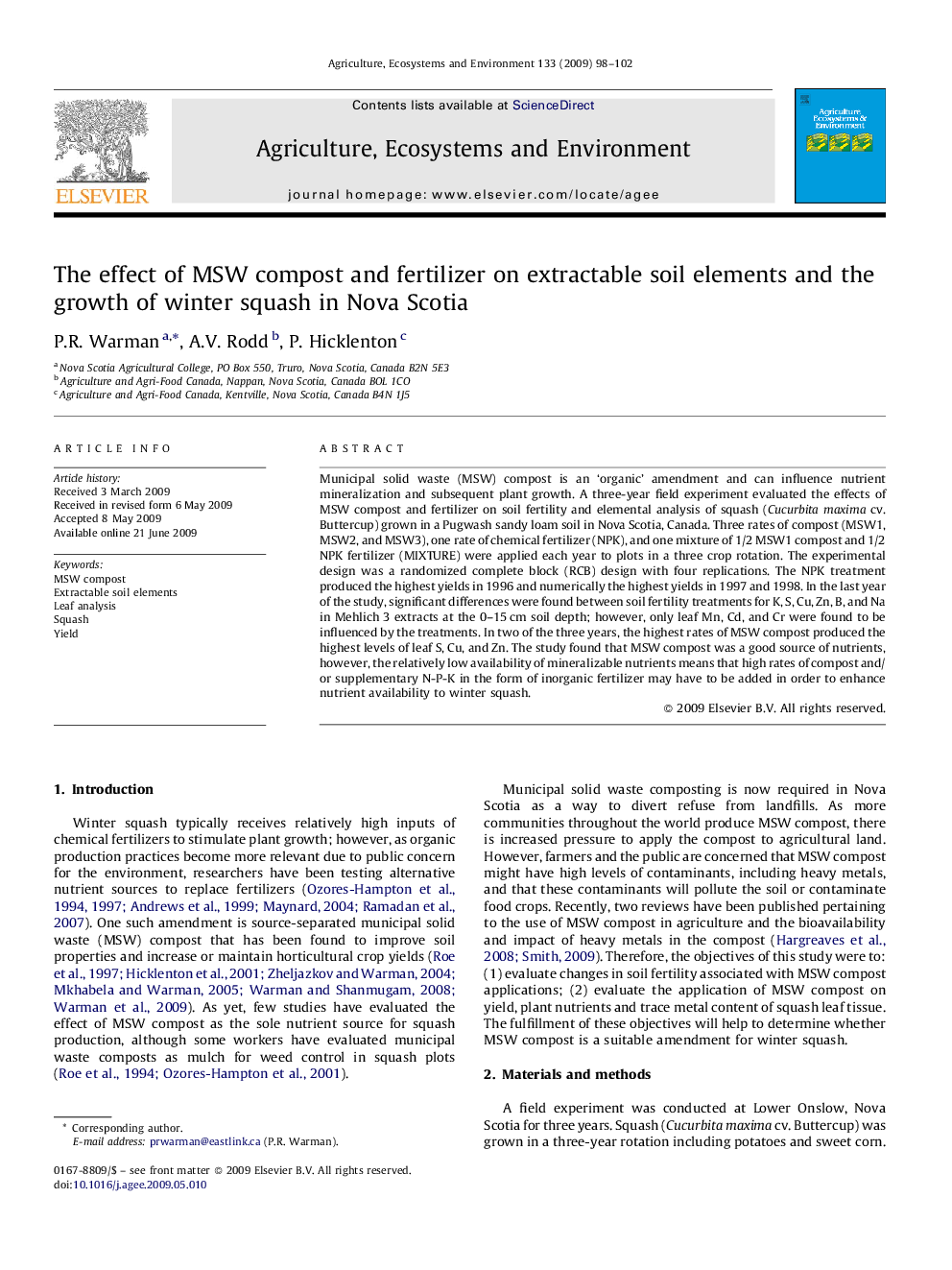| Article ID | Journal | Published Year | Pages | File Type |
|---|---|---|---|---|
| 2415105 | Agriculture, Ecosystems & Environment | 2009 | 5 Pages |
Municipal solid waste (MSW) compost is an ‘organic’ amendment and can influence nutrient mineralization and subsequent plant growth. A three-year field experiment evaluated the effects of MSW compost and fertilizer on soil fertility and elemental analysis of squash (Cucurbita maxima cv. Buttercup) grown in a Pugwash sandy loam soil in Nova Scotia, Canada. Three rates of compost (MSW1, MSW2, and MSW3), one rate of chemical fertilizer (NPK), and one mixture of 1/2 MSW1 compost and 1/2 NPK fertilizer (MIXTURE) were applied each year to plots in a three crop rotation. The experimental design was a randomized complete block (RCB) design with four replications. The NPK treatment produced the highest yields in 1996 and numerically the highest yields in 1997 and 1998. In the last year of the study, significant differences were found between soil fertility treatments for K, S, Cu, Zn, B, and Na in Mehlich 3 extracts at the 0–15 cm soil depth; however, only leaf Mn, Cd, and Cr were found to be influenced by the treatments. In two of the three years, the highest rates of MSW compost produced the highest levels of leaf S, Cu, and Zn. The study found that MSW compost was a good source of nutrients, however, the relatively low availability of mineralizable nutrients means that high rates of compost and/or supplementary N-P-K in the form of inorganic fertilizer may have to be added in order to enhance nutrient availability to winter squash.
